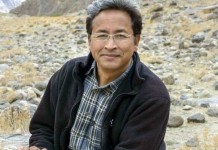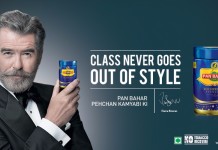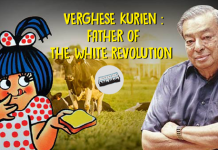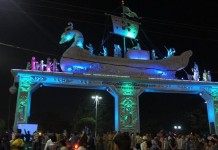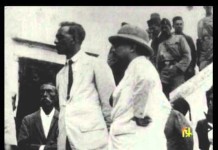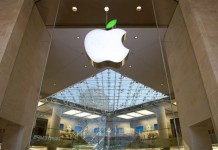Facebook founder Mark Zuckerberg has promised in an open letter to newborn daughter Max that he would give away 99% of his Facebook shares in his lifetime to the missions of personalised learning, curing disease, connecting people and building strong communities.
Zuckerberg and his wife Priscilla Chan have set up a limited liability company Chan Zuckerberg Initiative, not a charity or charitable trust, to fulfill his promise. The Initiative is owned and controlled by Zuckerberg and Chan. A spokesperson confirmed to Buzzfeed that the Initiative can spend its money on whatever it wants including private, profit-generating investment.
So rather than marking him out as the exception, his pledge puts him in a long list of US business moguls who have given away large chunks of their fortunes. The tradition dates back to the founding fathers of the US and includes the illustrious and infamous of the US super rich.
Some of the biggest US philanthropists were the so-called robber barons of the 19th century who made vast fortunes as the country industrialised. John D Rockefeller was perhaps the most generous giver and richest self-made man ever. He gave away about $540m before his death in 1937, amassed from his stake in Standard Oil, which controlled 90% of the US petroleum business at the time.
Other philanthropists of the era included the steel baron Andrew Carnegie, who gave away about $350m, or 90% of his wealth. Rockefeller and Carnegie built their fortunes using methods outlawed today such as predatory pricing and strike-breaking but deployed their money for the common good.
Bill Gates and Warren Buffett, the richest people in the US, have encouraged other wealthy people to give away at least half their fortunes, either in their lifetime or in a will. They set up the Giving Pledge in 2010 and the programme has attracted 138 subscribers. Most are from the US, but British signees include Michael Ashcroft, David Sainsbury and Richard Branson.
High-profile givers in recent history
Warren Buffett was the most generous philanthropist in the US last year, according to Forbes. Buffett, who made his $73bn fortune from investments, gave away $2.8bn in 2014 to take his lifetime giving to almost $23bn. Buffett has pledged to give away most of his money through the Bill and Melinda Gates Foundation, launched by the Microsoft founder and his wife to combat poverty. One of Buffett’s most famous aphorisms is that rich people should give their children “enough to do anything but not enough to do nothing”.
Bill and Melinda Gates were last year’s second-biggest US givers, donating $1.3bn and bringing their total giving to $31.5bn. The Microsoft founder and his wife, who are worth $79bn, set up their foundation in 2000 and its endowment was more than $44bn at the end of 2014, making it the biggest private foundation in the world. It aims to combat poverty globally and improve healthcare. It has funded research into HIV, sanitation in developing countries and education in the US. Critics have accused Gates of funding eye-catching activities without questioning the system that made his fortune.
Carlos Slim, the Mexican telecoms tycoon who rivals Gates and Buffett to be the world’s richest man, has expressed scepticism about the US pair’s approach to philanthropy and has not signed up to the Giving Pledge. Slim, worth $77bn, has argued education and jobs are the key to ending poverty and said in 2007 he would not try to be Santa Claus like Gates. But Slim has increased his charitable giving in recent years by doubling the endowments to his two main foundations to about $8bn. Slim’s near monopoly of Mexico’s phone market has provoked suspicion that his giving is designed to soften his image against regulatory intrusion.
Li Ka-shing, the Hong Kong business magnate, calls the foundation he founded in 1980 his third son and has promised to give away a third of his estimated $32bn wealth. The foundation’s aim is to promote education and health, mainly in greater China, and to encourage others to give their money away like Asia’s richest man. The foundation is reported to have pledged about $2bn to causes including the faculty of medicine at Hong Kong University, Hong Kong’s hospice movement and establishing a Buddhist monastery.
Azim Premji, India’s third richest person, said in 2013 he had given away a quarter of his fortune and that he intended to do the same again within five years, in line with his commitment to the Giving Pledge. The outsourcing mogul, now worth about $16bn, launched his foundation aimed at improving Indian education in 2001. His giving includes $2bn to improve school education by transferring 213 million shares of his Wipro business to a trust. He has also funded a university named after him that promotes educational thinking.
Sir Richard Branson signed up to the Giving Pledge in early 2013, promising to invest in “entrepreneurial approaches to help make a difference to the world” when his family takes its money out of his Virgin empire. Branson’s fortune is small compared with those of Gates and Buffett but with an estimated wealth of $5bn he is due to give away about $2.5bn. He also pledged in 2006 to divert $3bn of profits from his airline to develop a low carbon fuel though he said last year the figure so far was about $300m. Branson’s Virgin Unite foundation says all its costs are funded by the Branson family and Virgin so that donations go straight to causes such as conservation and developing entrepreneurs.
(With inputs from The Guardian)





